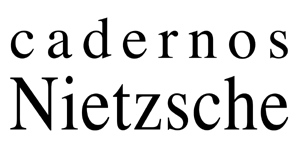Abstract:
We address nietzschiana interpretation on the issue of freedom and necessity. We show how the German philosopher disputes notions of philosophical tradition, linked to this problem, as “cause and effect”, “subject”, “i”, “will” etc. He points how these concepts would be just anthropomorphic constructs that cannot unravel the nature of the actions; managed only by the power control game of the will of power. We show that Nietzsche, even with this radical criticism of the concepts of tradition, continues to employ notions such as “fatality”, “necessity” that seem to resend to the anthropomorphic conceptualization questioned. We indicate how the author of Zaratustra manages to overcome the objections that may be made to an oscillating thought, which sometimes seems to deny and affirm freedom at different times of his work. We agree with interpreters who point out that Nietzsche’s style deliberately chooses to raise paradoxes and apparent apores, since his goal, before establishing a doctrine or a consolidated theory about freedom and necessity, is an attempt to instigate new reflections, new thought experiences, new paths of meditation on the action of man.
Keywords:
perspectives; freedom-need; causality; subject; will
